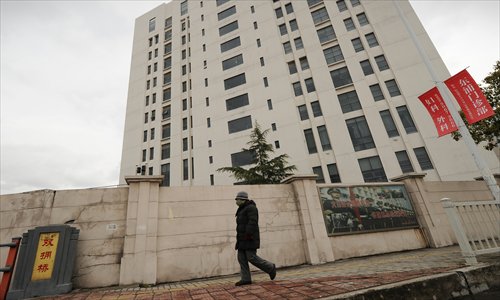Public power crucial tool in external rows

The White House on Wednesday issued a document outlining tough measures aimed at cracking down on international theft of US trade secrets. The 141-page document was published after US cyber security company Mandiant recently accused the Chinese military of involvement in US hacking. China is believed to be the main target of the document.
This is a prominent example of the US government and a non-governmental institution combining to target China. In a report on February 18, Mandiant accused the Chinese military of organizing cyber attacks on US companies. Just two days later, the White House came up with a similar report. Is it a coincidence?
Synchronized steps among US non-governmental institutions, the media and government is surprising. In the US, research institutes and media are supposed to be independent, but this time, public institutions have been manipulated to pave the way for governmental policies, as the issue is closely related to national interests. Perhaps we can't criticize this cooperation. There is nothing wrong in people uniting to safeguard national interests. But it's a lesson for China.
Can China act like the US in uniting the government and public's power in diplomatic rows? Unfortunately, we cannot. Chinese authorities lack experience in interacting with the public, especially the media, when making major policies. They rarely reveal sensitive information actively. When disputes with foreign countries occur, it is often the foreign media that first reports on these conflicts.
Currently, China doesn't have an atmosphere in which the country's interests can be defended in the media field and on the Internet. A "muckraking frenzy" by the Chinese public is damaging the authority of officials, and also affecting the support for the government in external conflicts. Patriotism is even questioned and mocked. Chinese people are split on the cyber security problem, and there are even a certain number of people who support the Western position.
Due to a lack of official-public cooperation as is seen in the West, China acts clumsily in its disputes with other parties. Hard power is the main tool used to protect its national interests, and China now can only depend on official rhetoric and diplomatic cliché in public opinion disputes with other parties. The Chinese public only has access to tidbits of information and acts as onlookers.
Such a situation must change. Western verbal attacks damage China's international image, and the embarrassment and humiliation brought to the country are harmful to its confidence. Chinese authorities should change their way of thinking, mobilizing the public to cooperate with the government in decision-making and diplomacy.
China's opening to the outside world is comprehensive. Some government departments or authorities cannot completely deal with the complicated situations resulting from China's clashes and conflicts with other countries. China should encourage the whole of society's engagement in communication with other countries. Only in that way can China handle complex situations with ease and get the upper hand in important diplomatic issues.